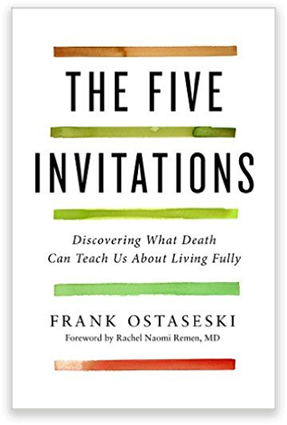Loss is inevitable and grief is the process of healing the pain associated with loss. Our grief is our common ground. Along the path to healing we are all called upon to examine our grief. To grieve is to be human. It is perhaps the most human of experiences. When we do not grieve we hardly exist. There is no predictable schedule for grief. It is a subjective and highly personal experience
While we normally associate grief with the death of a loved one there are many causes of grief. Consider these types of losses.
- Loss of a Loved One: Everyone we know and love will one day die. We may feel we lose them earlier when physical or mental illness strike. This type of loss might include the loss of beloved pets
- Loss of Relationship: This may arise in the natural course of life as when our children grow and leave home. It may also occur suddenly as in a divorce or the ending of a close relationship. Co-workers lose their job or choose to move on to a new one. We may lose important mentors and teachers during our lifetime.
- Loss of Identity: We may experience loss due to a change in role, a loss of status or position in our family community or workplace. We may lose our familiar Identity through our own experience of illness.
- Loss of Capacity: As we age we may lose physical or mental capacities. Maybe become less flexible or lose our hearing. Our skin has less elasticity. We lose control of certain functions. We age beyond their childbearing years. Or we may feel the loss of a dream or a long-held plan. It may also include loss of financial security which may trigger others losses.
- Loss of Place or Objects: We lose a favorite piece of jewelry or a treasured object. We move to another state or country to seek a new job opportunity or accommodate a move by family member. Conditions are continually changing. We may feel a loss of control as we encounter these changes.
- Loss that is not Recognized: The importance of the death of a friend, a colleague, even a pet may have a dramatic impact on our life. Yet we may fear of ridicule or dismissal of our feelings and so choose not to share the loss. In a similar way, certain losses are hidden as in a miscarriage or an abortion. Suicide, addictions, a runaway child are other losses which are frequently hidden and not discussed. Often these types of losses include delayed, distorted or prolonged grief.
- Loss by Community: There can be a collective grief that is experienced by a loss to a group, community, culture or nation. Examples include natural disasters, wars, death of a public figure or losses due to attacks people of certain religious beliefs or from certain cultures, LGBT communities and communities of color.
Supporting others who are grieving
After the initial shock of loss, people often enter a long period of losing. The person who is grieving may feel more intense emotions, fear, isolation and sadness. When someone we love dies it’s not a single event. We keep losing the person, at holidays or times of difficult decisions or little personal moments that we want to share we are painfully confronted with the absence of the person we love.
It’s during this period that we realize more clearly the roles that person has played in our life and we grieve those also.
We don’t just lose our wife when she dies. Maybe she was the person who worked out the battles with the kids, or made the money or the one that touched our body with love and tenderness. When our parents die, we may feel more fragile. They were the buffer standing between us and death and suddenly we become much more aware of our own mortality.
This is the period when we feel most alone. Friends drop away. Others give unwanted advice. After the death of her husband, one person told me that friends suggested she should get a dog for companionship. Others tell us to keep busy or get on with life. This is their fear of pain and our cultural predisposition to try to avoid anything unpleasant.
Advice doesn’t help.
People who are grieving may need time to themselves in one moment and company in the next. Often they may want someone to talk to about their feelings. Someone who will listen generously without judgment or a need to fix.
Here are a few simple ideas to consider when supporting someone experiencing loss.
- Listen, speak and act from the heart.
- Ask about and reflect feelings.
- Do not minimize grief or rush the process
- Allow for the complexity, ambiguity and differing expressions (or non-expressions) of grief.
- No simple solutions.
- There is no timetable for grief.
- Grief can be a physical experience with multiple expressions. Some people sleep all day others are continuously restless. Some get headaches while others feel nausea. Allow for common physical expressions of grief.
- Recognize that men and women may grieve differently.
- Be a calm and loving presence.
- Value the loss.
- All feelings are allowed
- Do simple things with regularity. Make a meal or a supportive phone call.
- Be available as you are able.
- Talk about your own losses when appropriate.
—Frank Ostaseski is the founder of the Metta Institute and cofounder of the Zen Hospice Project and author of Five Invitations: Discovering What Death Can Teach Us About Living Fully. www.fiveinvitations.com
Copyright Frank Ostaseski




Leave a Comment